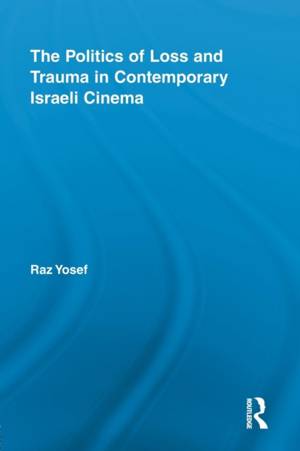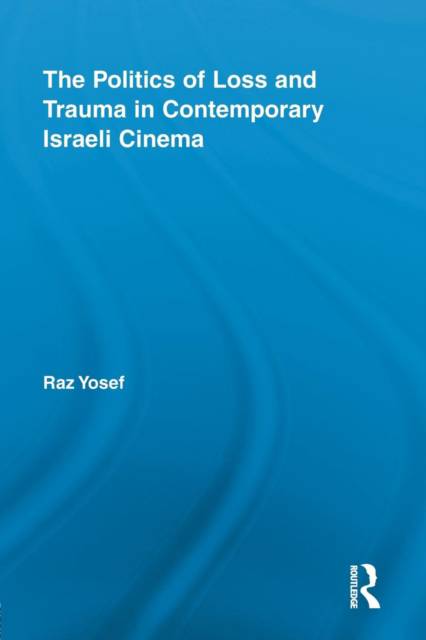
- Afhalen na 1 uur in een winkel met voorraad
- Gratis thuislevering in België vanaf € 30
- Ruim aanbod met 7 miljoen producten
- Afhalen na 1 uur in een winkel met voorraad
- Gratis thuislevering in België vanaf € 30
- Ruim aanbod met 7 miljoen producten
The Politics of Loss and Trauma in Contemporary Israeli Cinema
Raz YosefOmschrijving
The last decade has marked the growing visibility and worldwide interest in Israeli cinema. Films such as Walk on Water, Or, My Treasure, Beaufort and Waltz with Bashir have been commercially and critically successful both in Europe and the United States and have won a number of prestigious international awards. This book examines for the first time the new ideological and aesthetic trends in contemporary Israeli cinema. More specifically, it critically explores the complex and crucial role of Israeli cinema in remembering and restaging traumas and losses that were denied entry into the shared national past.
One of the most striking phenomena in contemporary Israeli cinema is the number and scope of films dealing with past traumatic events - events that were repressed or insufficiently mourned, such as the memory of the Holocaust, traumas from wars and terrorist attacks, and the losses entailed by the experience of immigration. Current Israeli cinema exposes and highlights a radical discontinuity between history and memory. Traumatic events from Israeli society's past are represented as the private memory of distinct social groups - soldiers, immigrants, women, queers - and not as collective memory, as a lived and practiced tradition that conditions Israeli society. This detachment from national collective memory pulls the films into a world marked by a persistent blurring of the historical context and by private and subjective impressions - a timeless world of dreams, hallucinations and myths. These groups feel duty-bound to remember the past, recasting repressed memories through the cinema in order to return and to give meaning to their identity.
Specificaties
Betrokkenen
- Auteur(s):
- Uitgeverij:
Inhoud
- Aantal bladzijden:
- 218
- Taal:
- Engels
- Reeks:
Eigenschappen
- Productcode (EAN):
- 9781138922174
- Verschijningsdatum:
- 23/06/2015
- Uitvoering:
- Paperback
- Formaat:
- Trade paperback (VS)
- Afmetingen:
- 152 mm x 229 mm
- Gewicht:
- 299 g

Alleen bij Standaard Boekhandel
Beoordelingen
We publiceren alleen reviews die voldoen aan de voorwaarden voor reviews. Bekijk onze voorwaarden voor reviews.











